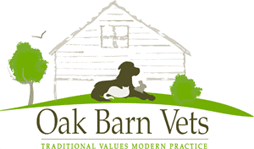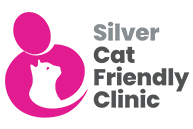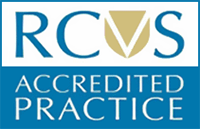Many of you would have heard on the news this morning the worrying outbreak of a new type of Avian Influenza on the Continent. As yet there have been no reported cases in the UK but we are on red alert with special measures being introduced by the Government to try and protect an outbreak. If you have any pet birds but especially poultry then please read for further information.
Avian influenza (bird flu) mainly affects birds. It can also affect humans and other mammals.
Some strains of avian influenza cause a notifiable disease. If you suspect any strain of avian flu you must contact your vet or tell your nearest Animal and Plant and Health Agency (APHA) office immediately. Failure to do so is an offence.
If you keep poultry, you should keep a close watch on them for signs of disease, and maintain high levels of biosecurity at all times. If you have any concerns about the health of your poultry, seek prompt advice from your vet.
Latest situation
Poultry keepers must now keep chickens, hens, ducks and turkeys housed indoors where practicable, or keep them separate from wild birds. For farmed geese, gamebirds and other captive birds where housing is less practicable, keepers must take steps to keep them separate from wild birds.
This is because on 6 December 2016 Defra announced an Avian Influenza Prevention Zone to help protect poultry from a highly pathogenic strain of avian flu present in Europe. The zone covers the whole of England and will remain in place for 30 days (until 6 January). You can read more about this further down this page.
The Government Vets have taken this decision because of the increased risk of avian influenza (bird flu) reaching the UK. During the autumn of 2016, outbreaks of highly pathogenic avian influenza of subtype H5N8 have been found in poultry and wild birds in several countries across Europe. No cases have been reported or found in the UK yet but the situation is being monitored very closely.
About avian influenza
There are 2 types of avian influenza. Highly pathogenic avian influenza (HPAI) is the more serious type. It is often fatal in birds. The main clinical signs of HPAI in birds are:
- swollen head
- blue discolouration of neck and throat
- loss of appetite
- respiratory distress such as gaping beak, coughing, sneezing, gurgling, rattling
- diarrhoea
- fewer eggs laid
- increased mortality
Clinical signs can vary between species of bird and some species may show minimal clinical signs (ducks and geese).
Low pathogenic avian influenza (LPAI) is usually less serious. It can cause mild breathing problems, but affected birds will not always show clear signs of infection.
How avian influenza is spread
The disease spreads from bird to bird by direct contact or through contaminated body fluids and faeces.
The avian influenza virus changes frequently, creating new strains, and there is a constant risk that one of the new strains may spread easily among people. But there is no evidence that any recent strain of avian influenza has been able to spread directly between people.
Avian influenza isn’t an airborne disease.
Prevention Zone
An Avian Influenza Prevention Zone declaration was declared by Defra on 6 December 2016. This means extra biosecurity measures for all poultry and captive birds to protect them from the risk from wild birds. The zone covers the whole of England and will remain in place for 30 days (until 6 January).
The zone requires the immediate and compulsory housing of domestic chickens, hens, turkeys and ducks, or where this is not practical, their complete separation from contact with wild birds. For farmed geese, gamebirds and other captive birds, keepers should take practical steps to keep these birds separate from wild birds.
Biosecurity
If you keep poultry you must keep a close watch for any signs of disease. If you have any concerns about the health of your poultry, you must quickly seek advice from your vet.
All bird keepers must now take extra biosecurity steps, including:
- minimising direct and indirect contact between poultry and wild birds
- making sure that feed and water can’t be accessed by wild birds
- taking all reasonable precautions to avoid the transfer of contamination between premises, including cleansing and disinfection of equipment, vehicles and footwear
- reducing the movement of people, vehicles or equipment to and from areas where poultry or captive birds are kept
- implementing effective vermin control programmes around buildings where poultry or captive birds are kept
- thoroughly cleansing and disinfecting housing and equipment at the end of a production cycle
- keeping disinfectant at the right concentration at key points such as farm entrances and entrances to bird houses
Poultry keepers should read the Government Information Sheet for more detailed information about how to house their birds and keep them separate from wild birds, and about the extra biosecurity measures:




